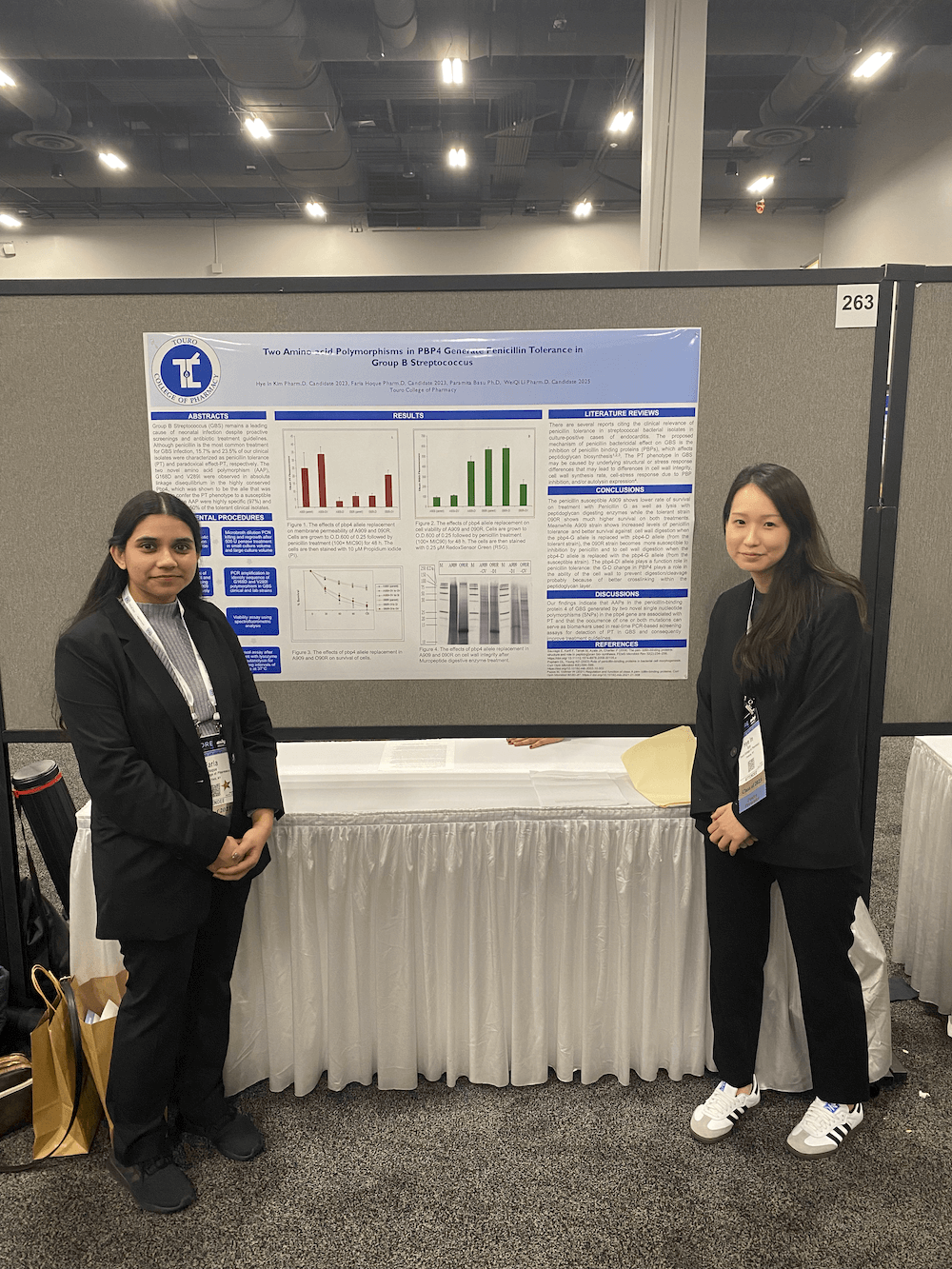Two Amino-acid Polymorphisms in PBP4 Generate Penicillin Tolerance in Group B Streptococcus (GBS)
Hye In Kim, Faria Hoque, Weiqi Li, and Dr. Paramita Basu

Hye In Kim, along with co-authors Faria Hoque, Weiqi Li, and Dr. Paramita Basu, presented a study on penicillin tolerance in Group B Streptococcus (GBS). GBS is the leading cause of neonatal mortality and is at risk of becoming penicillin resistant over time. The purpose of their study was to determine the potential amino acid polymorphisms (AAP) that could alter cell wall composition and reduce the efficacy of penicillin. Cell cultures were exposed to penicillin and then analyzed. The study discovered that AAPs in the Penicillin-Binding Protein 4 of GBS, generated by two novel single nucleotide polymorphisms, are associated with penicillin tolerance. These variants can serve as biomarkers used in real-time screening for detection of penicillin tolerance in GBS. In other words, this discovery can improve treatment guidelines for future patients when treating this disease.
“I presented a study on penicillin tolerance in Group B Streptococcus (GBS) at the ASHP conference as part of a student poster. The members in attendance were familiar with the subject and were interested in the study. Although GBS is a commensal organism which is found in the stomach of humans and in the lower genital tract in women, it is also the leading cause of neonatal mortality which is a known concern in healthcare. The members were all from a healthcare field and had some knowledge and degree of background information on GBS which aided me in terms of engaging with the audience. During the presentation, I emphasized what we discovered from the study and how it can impact the treatment/screening process in the real world. I witnessed many attendees agree with what was said and many saw the potential of using the two novel SNPs that were associated with penicillin tolerance as biomarkers.” - Hye In Kim

